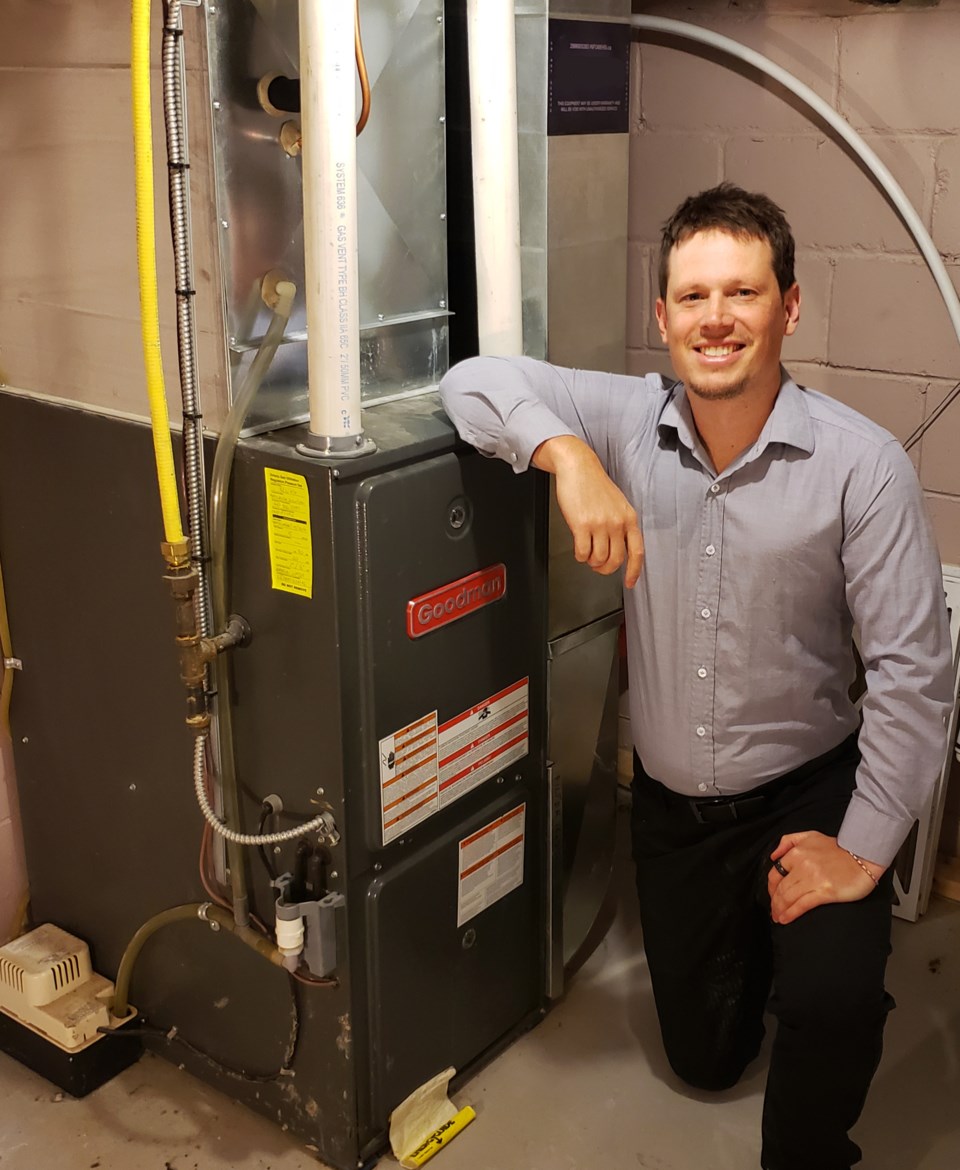Households in Waterloo Region can expect to pay more to heat their homes this winter after the Ontario Energy Board (OEB) approved changes to Enbridge Gas' rates effective Oct. 1.
The total impact on your bill will depend on how much gas you use and the terms of your gas marketer agreement.
But, according to the Ontario Energy Board, average natural gas prices are set to rise from $64.80 to $163.83 annually for a typical residential user, depending on the provider.
For Enbridge customers, who make up the vast majority of natural gas customers in the province, this means a hike of $74.18 a year.
“Everything is more expensive these days and added heating costs just adds insult to injury,” said Simon Bernath, CEO of Furnaceprices.ca
“This could mean up to a $500 annual increase on the average homeowner’s natural gas bill.”
As the war in Ukraine enters its ninth month, natural gas prices around the world have soared, including here in Canada.
“People in Europe will have it even harder than us. So, I don’t now if we can count ourselves lucky or not,” Bernath said.
“In Canada, heat is not an optional expense. When you are on a fixed income, this increase just eats that much more into your budget. It does also depend on usage, but if you figure that the average homeowner might be spending $1-2,000 a year to heat their home, an increase of several hundred dollars is quite substantial.”
But Bernath said, there are some programs that could help with managing higher heating costs especially for lower-income homeowners, such as seniors and people on a fixed income.
“There are many local programs that can help with keeping costs down. In addition, there are a variety of programs at the national level and locally that can help with upgrades to your home that can essentially make it more environmentally friendly and lower energy costs,” Bernath said.
“One of those, for instance, is a Greener Homes program which is a federal program that can give a homeowner up to $5,000 towards energy saving upgrades."
This includes upgrades such as replacing windows and doors, upgrading your heating system, and insulation.
"There is also a loan component to this, so that can help out as well," Bernath said.
Enbridge has a number of programs that can help people facing difficulties making payments. Low-income households can apply for some relief through the low-income energy assistance program. People can visit the website here, for more information. The company also offers incentives to help make homes more energy efficient.
“That, of course, is long term and does take some investing and leg work, but in the long run, it can certainly make a big difference,” Bernath said.
But there are some 'everyday' tips people can do to help reduce heating costs at home.
“You can replace an older or manual thermostat with a ‘smart’ thermostat. That can sometimes save anywhere from 10-20 per cent in heating costs by making your system more efficient,” Bernath said.
Anther tip, Bernath said, is to lower your temperature at night, when sleeping.
“You should also replace your furnace filter regularly because once that gets clogged up, your furnace has to work harder to circulate air. That obviously uses more energy, and having a clean filter is better for air quality,” Bernath said.
Bernath also said that a good idea is to have your furnace cleaned and inspected regularly, especially before the winter season to make sure everything is running smoothly.
“Also, have a look at all of your windows and doors and check for gaps and drafts. Overtime things wear out. You pay so much for heat, and it could all just be seeping out,” he said.
“You can buy simple kits at the hardware store, and they are easy to do yourself to help better insulate your home."
According to Bernath, every degree you lower your thermostat, can save you three per cent.
“If you are able to be just a couple degrees lower, wear some cozy clothing, and that can add up to a few per cent in savings over time,” Bernath said.
“Make sure your heat registers are unobstructed with good air flow and use ceiling fans to make sure heat is being well circulated.”
On sunny days, Bernath encourages homeowners to leave their curtains and blinds open and then close them at night which can help to better insulate homes against heat loss.
“There are all sorts of little things that can make a small impact, but they can all add up,” Bernath said.
According to the Region of Waterloo, if residents are behind on utility bills or need ongoing financial assistance to make hydro affordable, there are several programs they can apply for.
For more information, visit here.
